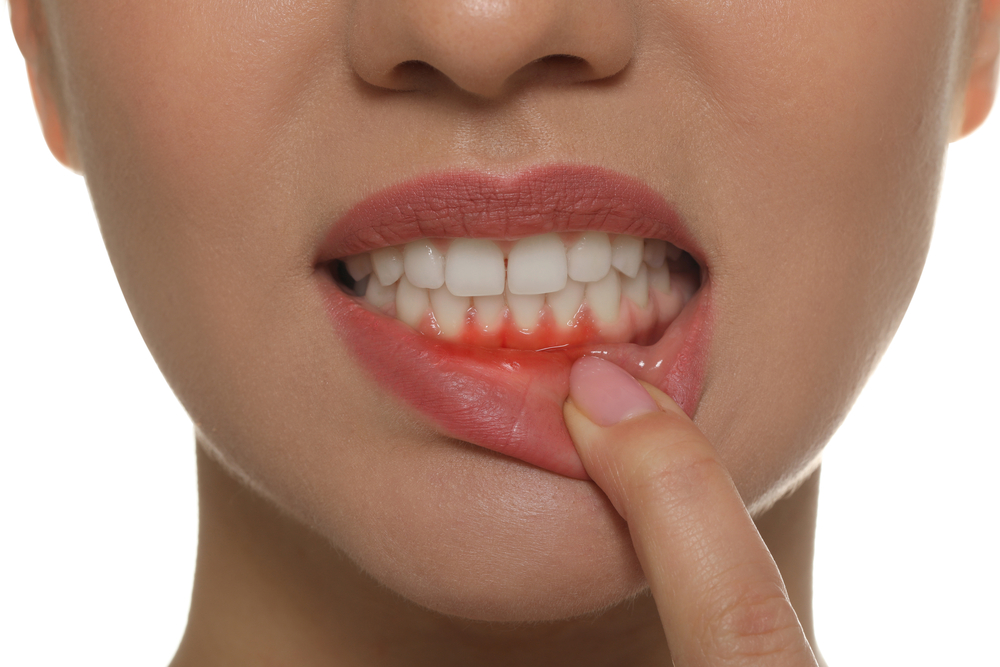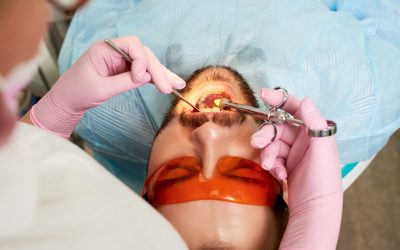Our gums are broadly categorized into two: there are thin gums and thick gums. Thin gums are also called scalloped gums, and thick gums are also referred to as flat gums. These classifications of the gum tissue are referred to as Periodontal Biotypes and are aimed at describing the texture and consistency of the gum tissue and its general appearance alongside the teeth. These gum tissues do not point to a good or bad type but the natural endowment of different kinds of gums, so it’s not a matter of your oral health routine. It’s even possible for the same person to have both types. If you think your gums might be receding, book a consultation with us and our team of experts will help you determine if there are any issues with your oral health.
Now, let’s explore the different kinds of gum tissues one could have and analyze if there is a relationship between thin gums and receding gums.
What are thin gums?
Thin gums are also called scalloped gum and are gum tissues that are thinner in consistency at the point where they meet with the tooth. Thin gums leave off a triangular appearance to the teeth rather than a square appearance.
What are thick gums?
Thick gums, on the other hand, are gum tissue that is thicker in consistency where they meet the tooth, thereby causing the teeth to take on a square-shaped appearance. Thick gums are also called flat gums. While thin gums are prone to recession and bone loss in severe cases, thick gums are prone to pocketing. Pocketing occurs when the gum tissue loses its attachment to the tooth, leaving a deep space around the tooth. Both conditions are gum diseases which can cause tooth sensitivity, loss of gum tissue, and tooth loss if left untreated. Luckily, they can be prevented with good oral hygiene habits including brushing twice a day using a soft-bristled toothbrush and flossing once a day.
What causes receding gums?
Receding gums occur when the gum tissue pulls away from the tooth and exposes the tooth root. Receding gums are found in people with thin gums. The consistency of thin gums tends to result in gum recession as the gum tissue is not thick where it meets the teeth. As thin gums lose their texture over time, the gum tissue tends to recede from the teeth leading to sensitivity, pain and discomfort, cavities, and other dental issues. Several factors can aggravate receding gums such as aggressive brushing, periodontal disease, dental plaque, tooth misalignment, and genetics.
How to stop receding gums from getting worse
If receding gums are caused by genetics, there’s little you can do to stop it. The same can be said of other factors that facilitate receding gums. This is because receding gums is a result of having thin gums. However, in order to stop receding gums from getting worse, the only thing you can do is maintain good oral hygiene and prioritize your dental health to slow down its progression. You can also take some steps to reduce your risk of infection resulting from gum recession. Some things you can do to attain a healthy smile and slow down gum recession include brushing regularly, flossing once a day, using antimicrobial mouthwash, and getting regular dental cleanings. You should also invest in a good toothbrush, and avoid smoking and tobacco use.
How to fix receding gums
If you have started to feel some discomfort or sensitivity around your gums and think they might be receding, book a consultation with us. Our dentist will determine the cause of your gum recession before deciding which treatment options are right for your condition. If you have mild gum recession, it can be treated using nonsurgical methods including topical antibiotics, dental bonding, and orthodontics. If the recession is severe, you may need to undergo gum recession surgery or gum grafts. You may also need professional cleaning during your appointment.
At Little Green Building, we provide periodontal treatment that can help maintain your receding gums. Your oral health is our priority and we have a wealth of experience and dental professionals that will attend to your case with the utmost care. Book a consultation with us to begin the process!





